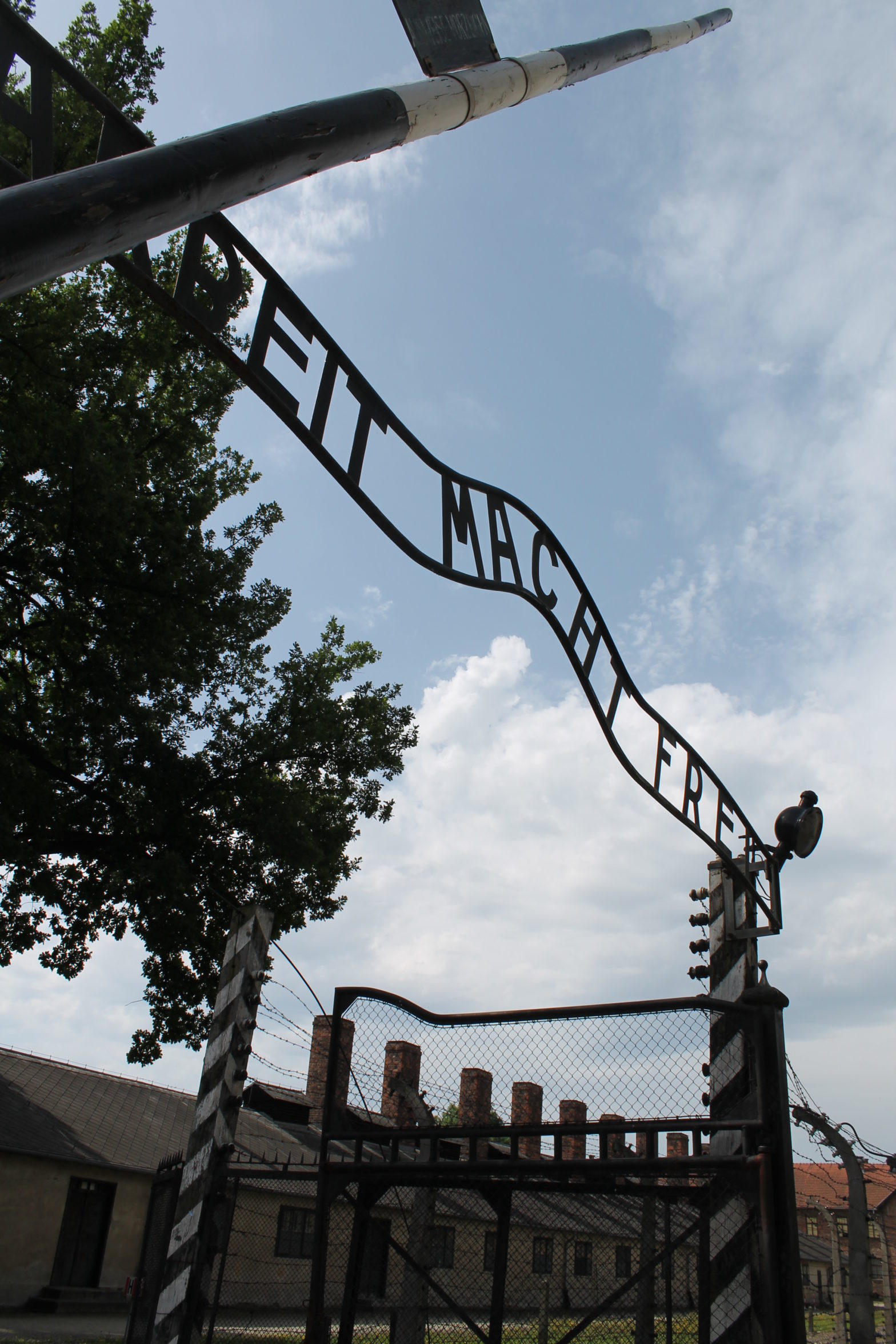Auschwitz. How do I begin to speak about Auschwitz?
The place fills my memory with snapshots.
A doll’s chipped face lying next to its porcelain body
A twisting metal sign promising work will make you free
A mountain of shoes towering and spilling behind a glass case
A sea of stoves stretching into the blue haze of a summer day
Endless faces of children laughing, playing, gone.
I’m not going to talk about the Jews, homosexuals, Polish prisoners, political victims or people of African descent, although their stories are important and should always be kept in mind.
Today, I am here to remember the Roma: the people I have been learning about, laughing with and watching from behind a 50 mm lens for the past two months.
I woke up the morning of my visit to Auschwitz angry. I was angry at the state of the world: the casual racism and bigotry, genocide jokes, gender tension, mutilation in the name of tradition, cruelty in the name of God.
I was angry at the things I could not change and wondered about my role in the hurting and healing of this world.
I’d been trying to prepare myself for this day since I had learned I was going to Poland. My group didn’t take the main tour at Auschwitz for which I am grateful. I was able to slip away and experience things on my own. I needed to do it alone.
I found the Roma building tucked out of the way, off from the main tour. It was less popular than the gas chambers or hospital. Only a few stray tourists wandered in to see the photographs of Roma and Sinti lining the walls.
In one tiny room in the corner was a long black box with a television at the top. It was playing a video of Roma children in the concentration camp. Soaring violins sang in the background. The children’s smiles and dark eyes looped every few moments.
They would never grow to adulthood, have their first kisses, get married, graduate university or grow old surrounded by their grandchildren.
They were frozen children, stuck in this skinny black box.
Perhaps now I know a hint of the meaning behind the Roma songs I’ve heard the school children sing about going to the Dark Land.
It’s not so much the devouring of the Porjamos, the Roma Holocaust, that keeps this misery in memory but the idea that the racial attitudes that led to the mass extermination of Jews, Romanies and people of African descent still exist in the lives of the Roma today.
People make comments about how they wish more Gypsies had been killed in the Holocaust so we wouldn’t have these problems. Politicians promise to help fix the “Gypsy problem.” A Neo-Nazi serves as a regional governor in Slovakia.
When I went to the Slovak building in Auschwitz, my friend pointed out the newspaper clippings from before the war that talked about the Gypsy menace, about how they should be dealt with. Some of the same phrases are used in the media in Slovakia today.
“Roma are backwards, lazy, useless, difficult, stupid. They are liars. They are thieves.” The very word “gypsy” translates to liar in Slovak which is why I never use it.
The Roma do not need pity or petty change.
They need opportunity, belief, acceptance of ethnic identity and a clearer nonracist perspective.
In short, they need what we all need: love, friendship, justice, mercy and understanding.
What builds a genocide?
We know the recipe.
We see the results.
The ingredients are stewing even now.
We must defeat our pet prejudices, look with compassion and awareness and acknowledge the parts we play in the problem.
We must be able to say “never again” and truly mean it.
It is too late for the Romani children in the video. They will never leave the shade of childhood, but others can.
In the Democratic Republic of the Congo, in North and South Sudan, Syria, Myanmar, Iraq, wherever and whenever senseless killing occurs and genocide brews beneath our noses, we have a responsibility to do something.
Will we allow these women, men and children to become blurry faces on a screen in a forgotten room of a rarely seen building?
Racial slurs contribute to the problem.
Sideway glances, glaring entitlement, fear and thoughtless jokes, unconscious purchases, silence when we should be screaming.
These all contribute to the video of Roma children — frozen, removed, stuck in time.
We have voices. We have hope. We have attitudes we can work to adjust.
Those who do not remember history are doomed to repeat it.
I was angry at the things I cannot change, and maybe that’s good. It’s good to be furious at the state of things every now and then.
But it’s time to get to work. Unless anger fuels a search for understanding based on hope, it’s not worth much.
It’s just endless, uninformed resentment cycling on with the children’s faces, flaming into oblivion and adding to the recipe of extermination, concentration camps and bitter bombs.








Leave a Reply